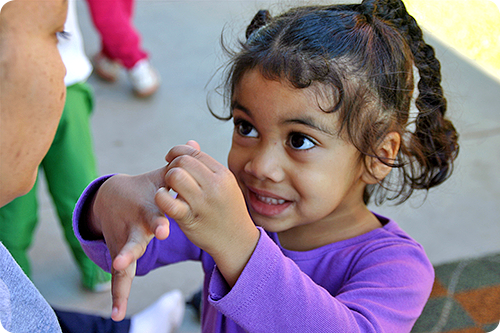Children use communication to learn, to express themselves, and to build and nurture relationships. Communication disorders can significantly impact their physical, emotional, social, and cognitive development. Early identification and treatment of Speech-Language disorders are important factors that can dramatically affect a child’s ability to improve.
Our Speech-language pathologists (SLPs) assess, diagnose, and treat speech, language, social communication, and cognitive communication disorders in children.
- Speech disorders occur when a child has difficulty producing speech sounds correctly or fluently (e.g., stuttering) or has problems with voice or resonance.
- Language disorders occur when a child has trouble understanding others (receptive language) or sharing thoughts, ideas, and feelings (expressive language).
- Social communication disorders occur when a child has trouble with the social use of verbal and nonverbal communication. These disorders may include problems:
- communicating for social purposes (e.g., greeting, commenting, asking questions)
- talking in different ways to suit the listener and setting
- following rules for conversation and story-telling.
- Cognitive communication disorders include problems organizing thoughts, paying attention, remembering, planning, and or problem-solving. These disorders often co-occur with other developmental disabilities.
Our SLPs use play as the medium to engage, build relationships, and develop a child’s communication skills. In our speech-language pathology therapy sessions, children are supported in expressing themselves using any mode of communication that is accessible to the child, including speech, gestures, or augmentative and alternative communication (AAC) systems. Our SLPs also provide AAC assessments for children who cannot express themselves through their speaking capacity.


